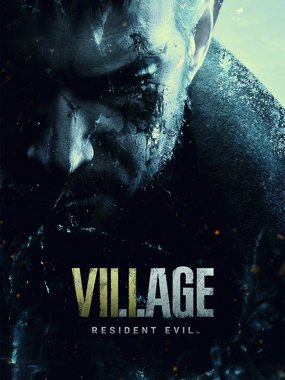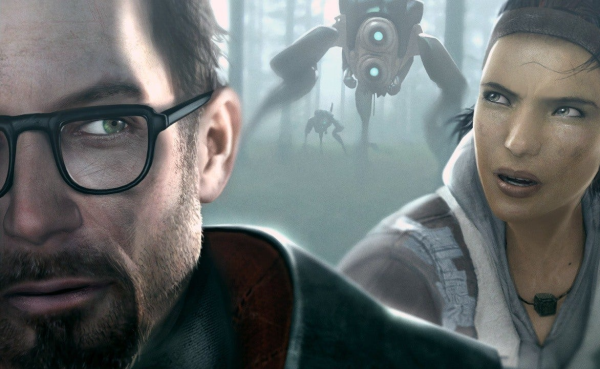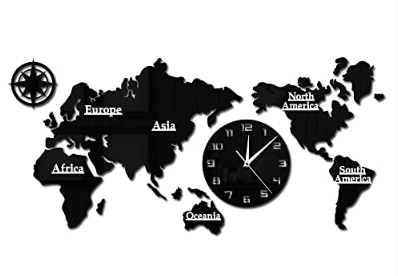Resident Evil Village: A Worthy Continuation of its Predecessor?

Resident Evil is a horror series following many different protagonists throughout the strenuous task of fending off victims of the T-Virus, which turns humans into horrifying, zombie-like creatures. The series has had two main adaptations, both not following a direct plotline: games and movies.
The movies aren’t anything to write home about and the games can get a little repetitive and tedious. However, with the recent release of Resident Evil Village, Capcom has shown they still have fresh ideas and want to give the series the fair shake it rightfully deserves. The series always has creative ideas but often tends to execute them poorly.
Back in the barren year of 2017 before the launch of the Nintendo Switch, games were not really coming out too well. We were experiencing a drought of fresh ideas and a multitude of overplayed concepts. When you bought a new AAA game in 2017, in a way, you were buying EVERY new AAA game at that time. It was not looking good for many developers and faith was being lost. Then, Capcom decided to come out of their Resident Evil hiatus and drop possibly the most refined, original idea that they have had in quite some time; Resident Evil Biohazard (AKA Resident Evil 7). It followed a new protagonist, Ethan Winters (Who the player controls) on a road trip to Louisiana after his wife, Mia, sent him an email telling him to come get her after being pronounced dead. She was there for a babysitting job but did not come back for three years, and the house she was at was disheveled and abandoned by the time Ethan got there. It turns out Mia fell victim to the mold growing in that house, which took over her body and genetically enhanced her, driving her to become insanely powerful and possessed. After a bittersweet and grotesque battle with Mia, Jack Baker, one of the antagonists, knocks you out and drags you to his giant horror story of a mansion where you spend, basically the rest of the game, whether that be backtracking to it or straight up exploring it.
The story of Biohazard is very interesting and the ideas are fresh, with puzzles that make the mind run and plentiful tense moments to keep your blood flowing. You are constantly pitted against these horrible creatures that look ten times more powerful than you and the only sense of hope you get is a little pistol that shoots bullets that basically say, “Good luck, idiot.” I love that the game makes you think about what your next move is, and it goes from the usual, “How do I kill this thing?” to, “How do I hide from this thing?” Morbidly, I do really enjoy playing horror games that make the player feel absolutely helpless because a mainstay threat makes progression even more worthwhile; no longer are you killing that horrible creature to get the key and go to the next area like an absolute champ, you are crafting tons of medkits because you know not every hiding space will work as you try to get that key from the horrible monster’s garbage-rank toilet as it circles around you, slowly, but surely gaining traction and killing you in three hits. Your weapons do nothing to anyone. It is the perfect experience and objectively one of the best in the series to date.
Resident Evil Village is more of Ethan’s story. His daughter, Rose, gets taken away from him by the same people that saved him from Louisiana and he’s knocked out and taken by force in a truck with them. However, they crash into a forest and Ethan wanders into an Eastern European village, the hub world, connecting him to the clues of finding his daughter.
This story holds up pretty well in terms of continuation and Ethan’s character development is very obvious. The storytelling is creative and it’s very enjoyable. However, the gameplay is a bit played-down. It’s the same as Biohazard with its great ability to convey emotions through the characters and knows when to be goofy and when to take itself seriously, but it’s downplayed in terms of threats and such.
Resident Evil is universally known for its identity of being a horror series, but Village was just kind of… lacking. Don’t get me wrong; there are some good scares in there, one of which is an entire section that combines all of my only fears. My partner didn’t hear the end of me being a baby about it for a good 2 days. I won’t say what it is because anyone who goes in blind should experience it for themselves, but it screwed me up. I hated every second of it. Other than that; lacking. It’s kind of just a really fun FPS without the 12-year-old on your team calling you a slur and the $60 price point.
The crafting system is a lot more refined and gives you more options, but the way you access the blueprints to craft things is a bit weird. In Biohazard, you kind of just gained the ability to craft certain ammo or medicine once you picked it up for the first time, whereas in Village, you have to buy the recipes. Logistically, it makes a lot more sense. Conveniently, though? Not at all. There are a lot of ways to earn money though, so that makes it a bit better.
Another thing worth mentioning is the breakable box mechanic. In Biohazard, there were boxes marked with yellow tape scattered around the game that contained things like herbs and chem fluids to craft medkits, or materials to make ammo. To break these things, you had to holster whatever gun you had and bring out your knife to break it, since ammo is always scarce and you don’t want to waste it shooting a crate. In Village, however, the breaking of boxes is just bound to a button and you get to keep your gun out. It’s a small change, but an extremely beneficial and convenient one.
As I said before, Village is just kind of a dumbed-down version of Biohazard that was good at continuing Ethan’s story and delivering some pretty fun gameplay. It’s in no way a bad game, far from it, it’s just kind of underwhelming, especially considering what Biohazard delivered. I feel that they played it a little too safe with Village, simply because Biohazard undersold its projected goal. That does suck to think about though. If they’re truly making games SOLELY for-profit… come on man. Biohazard felt like a passion project; a wide variety of ideas mashed together to make this a really worthwhile experience, whereas Village felt like the company’s response to Biohazard underselling. I feel like if they made a few changes to the enemies, made the player feel that same sense of hopelessness, and didn’t play it as safe, this would be the perfect gaming duology.















